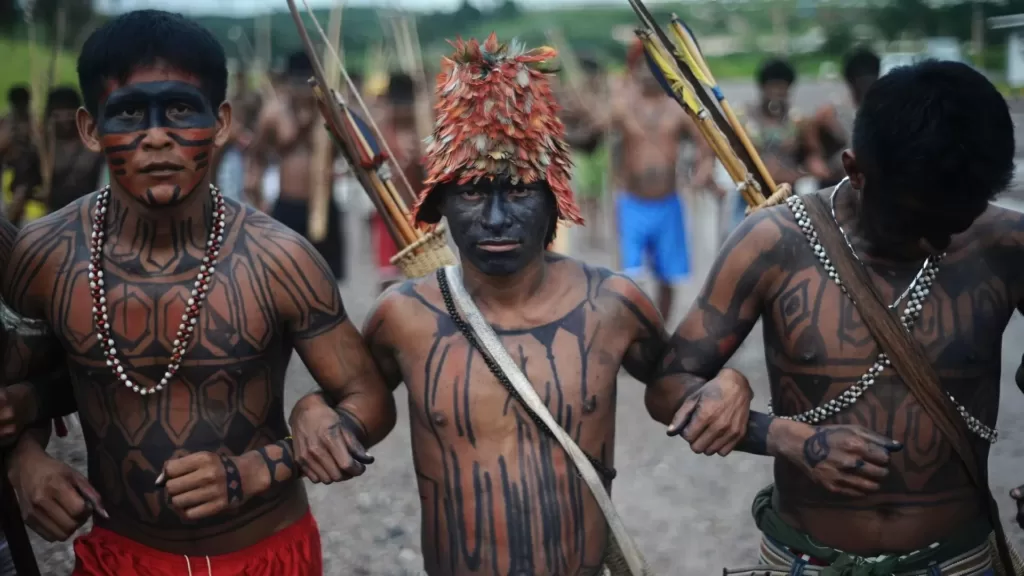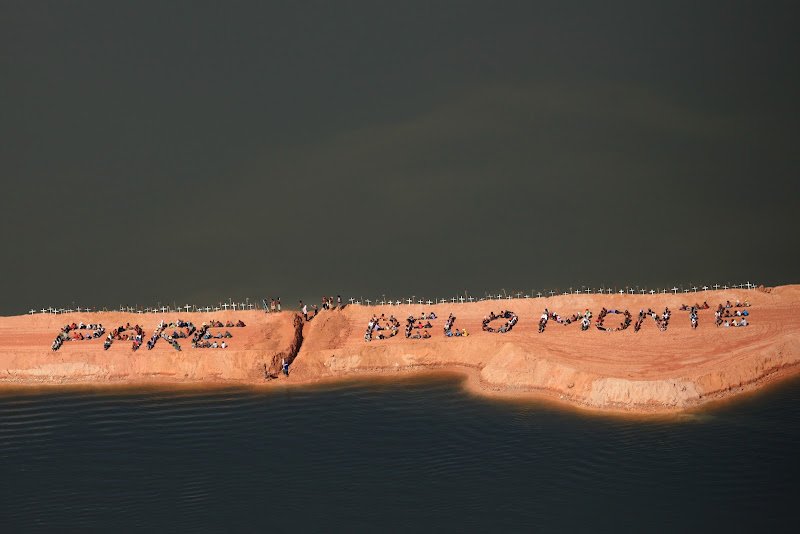XINGU ALIVE FOREVER MOVEMENT
The Movimento Xingu Vivo para Sempre (Xingu Alive Forever Movement) is a grassroots organization based in the Amazonian town of Altamira, located in the state of Pará, Brazil. For over ten years, Xingu Vivo has been the main resistance movement challenging human and environmental rights violations associated with the Belo Monte hydroelectric mega-dam complex on the Xingu River.
Created in 2008, during the second encounter of peoples of the Xingu mobilized against Belo Monte – which brought together more than two thousand indigenous people, riverside dwellers, small farmers, fishermen and national and international organizations – the Xingu Vivo Movement has mobilized populations threatened by the dam project, carried out dozens of peaceful civil disobedience protests, organized and participated in national and international campaigns that obtained support in more than 20 countries, pressured the Brazilian government, corporate actors and financiers involved in the project, and supported legal actions (nationally and internationally) with partner NGOs and the Federal Public Prosecutors’ Office (MPF).


After the construction of Belo Monte, the local population began to experience continuous impacts of the project on their lives and economic activities. The rivers’ waters began to be diverted from their normal course through an artificial canal to the dam’s main powerhouse. This drastically reduced its flow along a 100km stretch of the river known as the Big Bend of the Xingu (Volta Grande do Xingu), where thousands of riverbank families, fisherfolk, and small farmers live. This is also where two indigenous territories are located.
The damming and diversion of the Xingu River has provoked severe impacts on fish stocks, the primary source of food and livelihoods for the local population, and hampered the navigation and transport of people and goods through the river. Moreover, it has caused hydrological stress on underground waters and tributaries along the Big Bend that is decreasing the natural irrigation of agricultural floodplains, causing the riverine communities and small farmers to lose their plantations due to drought.
These and other impacts from Belo Monte have exacerbated chronic poverty in the region, which has led to an increase in land conflicts and threats against movement leaders. It also been linked to the intensification of illegal mining and deforestation promoted by ranchers, miners, and loggers. Currently, Altamira is the municipality with the highest rate of deforestation in the Amazon, while also being one of the most violent in the country.
- Monitoring, reporting, and publicly denouncing the impacts of Belo Monte;
- Organizing resistance against the proposed Belo Sun mining enterprise in the community of Ressaca, where the project is slated to be implemented;
- Supporting the Federal and State Public Prosecutors (MPF, MPE-PA) and the State and Union Public Defender’s Offices (DPE-PA, DPU) in lawsuits against the Belo Sun mining project for violations of human rights and environmental legislation;
- Supporting the Federal and State Public Prosecutors and the Public Defender’s Offices of the State and the Union in legal actions challenging the degree to which the Xingu River’s flows were reduced thanks to the Belo Monte dam;
- Ensuring the protection of various social leaders that received death threats from land grabbers and ranchers;
- Organizing the Guardian Nuclei of the Xingu, an 18 community initiative to lead the resistance and advance the production of alternatives in rural communities impacted by Belo Monte and threatened by Belo Sun.

